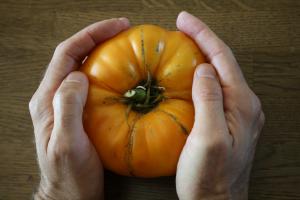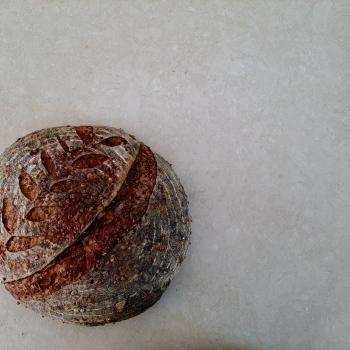
We’re waiting. We’re waiting for the election results, for the other Covid shoe to drop, for school to start or stop. To be human is to wait on something or someone at some point. But most of us don’t know how to wait well.
At least, I’m not good at waiting. It seems like I’ve been waiting for something my whole life–waiting to go to school, waiting to graduate, waiting to get married, waiting to accomplish what I had to accomplish to become myself. Once, when I was a young person waiting to hear from graduate programs, I walked the long walk to our country mailbox. There was a big packet from a program I had applied to rolled inside. In a flash, I entered a very different kind of waiting, a hands-trembling, run-for-the-letter-opener kind of waiting. And…yes!
Sometimes, I hang my life on What’s Next, sipping a perky cup of waiting like a stimulant to slog my mind through the day-to-day. Or waiting becomes my anxious game, the cursor constantly wandering to the refresh button as I wait for something–some news to arrive, some fear to be allayed, some opportunity to open. Thus is life: we wait.
Waiting both stretches and squashes the present. When we’re waiting for something, the present can become interminable. It stretches on forever. Nothing matters until we hear the results–for good or for ill–that we’re awaiting. Or the present gets squashed, all but disappearing as our lives compress into what we once did and what we hope to do someday. How do we avoid these two ruts?
Maybe Christian faith can teach us how to wait truly and well. “Wait for the Lord” instruct the Scriptures (Psalm 27:14; 31:24; Isaiah 40:31). It means trusting God’s timing and deferring to God’s initiative. But the deeper wisdom of waiting comes from the reality that Christian faith always means waiting “for the blessed hope and the manifestation of our great God and Savior, Jesus Christ” (Titus 2:13). Christians are always strung out between Jesus’ first and second coming. There’s a tensile quality to Christian faith, that characteristic of the kingdom being already present but not yet fulfilled.
When Paul talks about waiting in his letter to Titus, he says “live lives that are self-controlled, upright, and godly” (Titus 2:12). Each of these words have to do with what we do and say, how we act and comport ourselves. They’re character words. They’re practical and concrete. Be self-controlled, upright, and godly while you wait. Which is to say: Do what you’re called to do in the present rather than becoming excruciatingly fixated on the future.
You see, the problem with the way many of us wait is that we put our lives on hold until we hear what we need to hear. The present becomes a dim reflection of a more real future. But to be “self-controlled, upright, and godly”–that’s to be alive in the here and now, to pay attention to how we’re living, not just to imagine how we’ll live once our ship comes in.
What I’ve discovered is that even when what we’re waiting for arrives, we’re still just going to be us. Whatever we’re waiting on, it’s never going to live up to all the meaning we freight it with. Pretty soon we’ll be on the other side of it, the anticipated future slipping into the past. We’ll ask ourselves, Now what?
That graduate program admission letter that I had long awaited in my mailbox was not the end. It led to relocating and long hours of study and big, hard choices about what came next. It was a doorway into one kind of opportunity, but what mattered most were the questions that preceded that letter and that hung on afterward: who am I, and how am I called to live? Those are questions that can’t wait.













